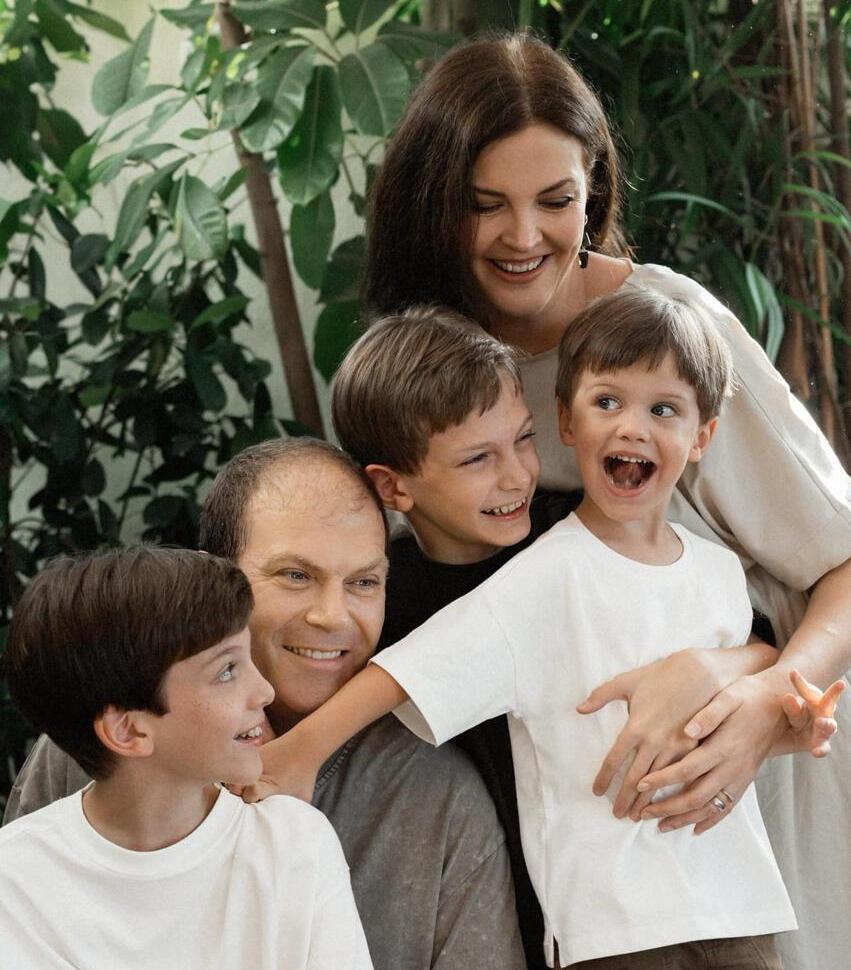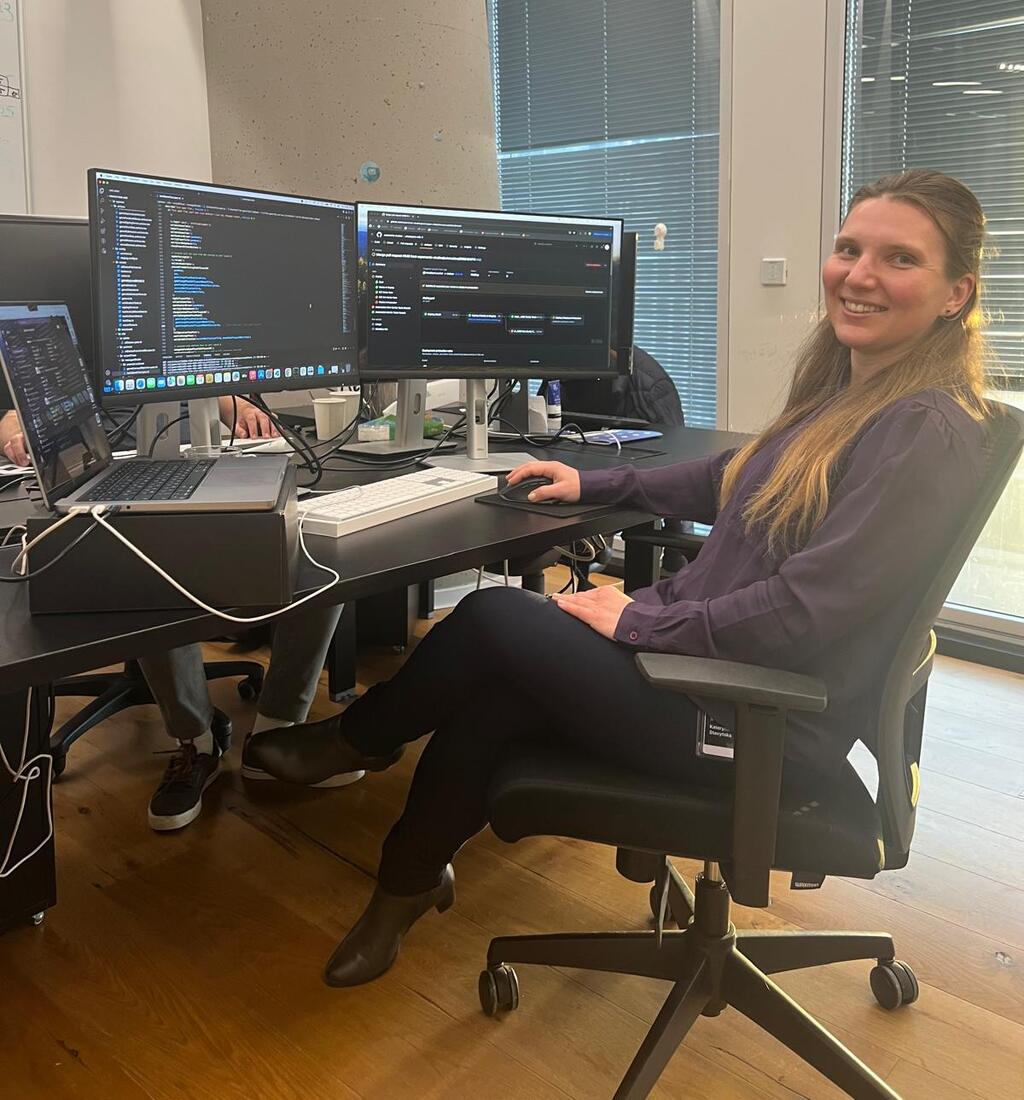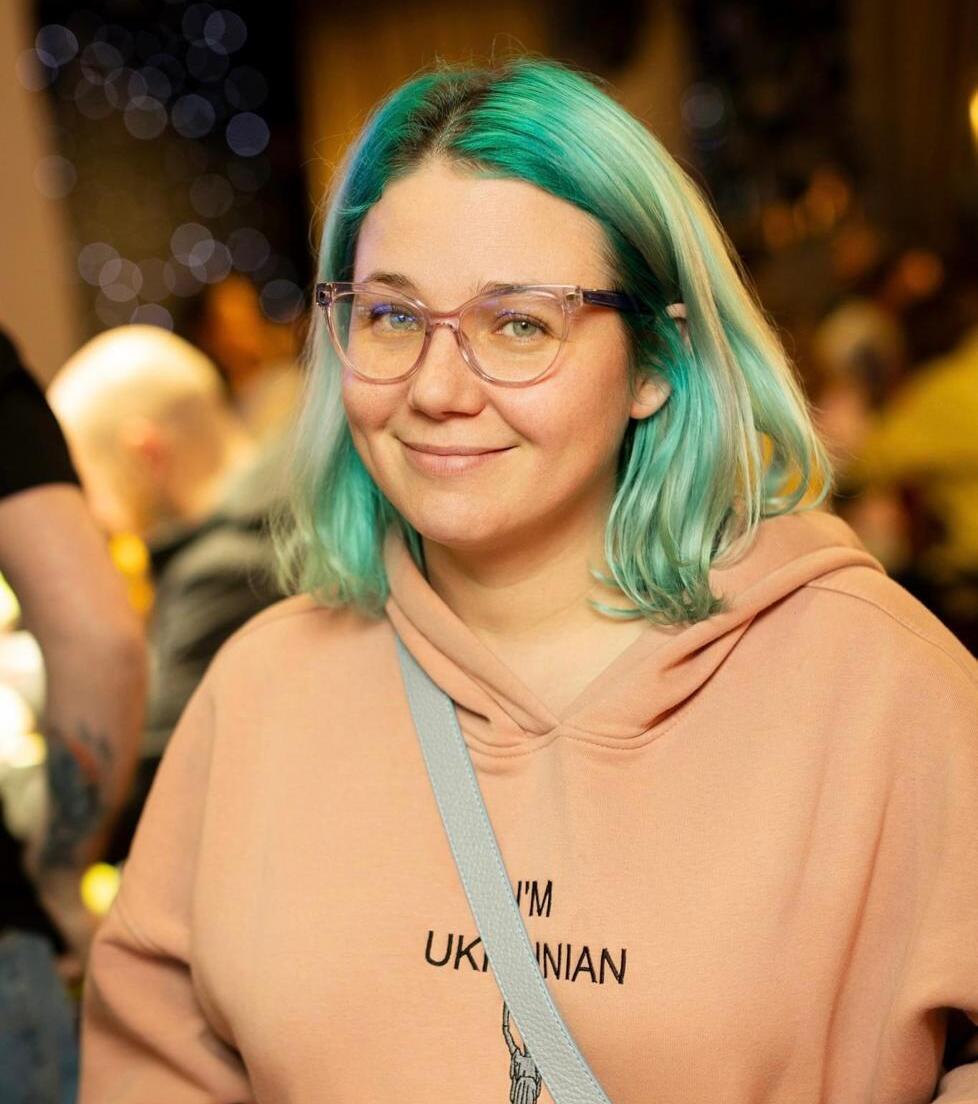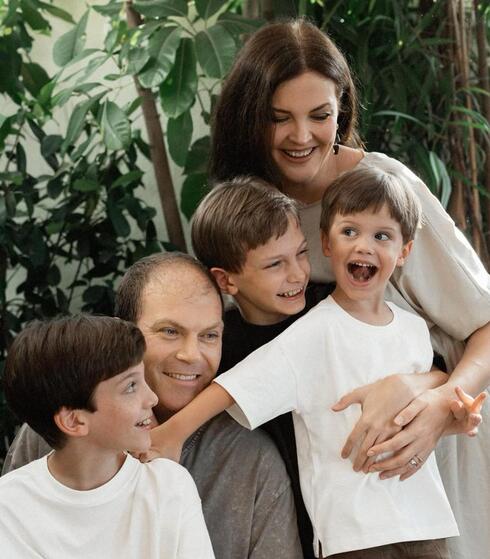
‘The war in Israel doesn’t scare us’: Ukrainian immigrants on fleeing one war for another
In the two and a half years since Russia’s invasion of Ukraine, almost 20,000 Ukrainians have immigrated to Israel. CTech spoke to three about fleeing one war for refuge only to experience another war as we quickly approach one year into Israel’s ongoing multi-front conflict.
When Alex Scheinerman asks his children how they feel amid Israel’s ongoing war, they answer: “It’s just another war.” Scheinerman and his family sought refuge in Israel after Russia’s invasion of Ukraine just two years ago. He says that while their experience in 2022 has made them more resilient during Israel’s nearly year-long multi-front war, it has also been very triggering.
“On the one hand, our sons are usually very calm when we ask them how they’re feeling, but on the other hand, our eldest son is 11 and he understands everything. He’s asked us to stop talking about the war because he’s scared,” says Scheinerman.
Born in Kharkiv, Scheinerman immigrated to Israel as a teenager and proceeded to serve in the IDF before pursuing a degree in mathematics from Hebrew University. He moved back to Ukraine in 1999 after accepting a job there and ended up staying for 11 years, building a family with his wife, Natalie, and their three children, ages 3-11.
During his time in Kyiv, Scheinerman worked as a general manager for the Ukrainian branch of Israeli tech company Lightricks. He was was hired in January, 2022 to establish a new R&D center in Kyiv and was about to hire 30 people when the war broke out.
Scheinerman recounts that the weeks leading up to Russia’s invasion were filled with anxiety. “All of my friends from Israel were asking, ‘When are you leaving?’” Despite the looming threat, his wife was reluctant to leave Ukraine and leave behind her father, brother and other family.
However, when Russia recalled its embassy from Kyiv and recognized Donbas as independent on February 21, 2022, Scheinerman knew it was time to leave. The days that followed were a harrowing ordeal. On February 24th, the family’s flight to Tel Aviv was canceled at the last minute. With three young children in tow - the youngest just eight-months-old - the family packed their Honda CRV and left Kyiv, navigating through kilometers of traffic and military blockades.
“It felt unreal, like the middle of a WWII movie,” Scheinerman says, describing the eight-hour gridlock and the sight of tanks and military vehicles. Their journey took them across Ukraine to the Polish border, but when they saw the miles of cars waiting to cross they shifted course. They finally crossed the Hungarian border after 14 hours on February 27th and three days of desperately trying to get out of the country.
By February 28th they were on a flight from Budapest to Tel Aviv, arranged by Lightricks. “Shaul Meridor (the CFO) was sending me messages every 20 minutes,” Scheinerman recalls, grateful for the support that helped his family escape the warzone.
5 View gallery
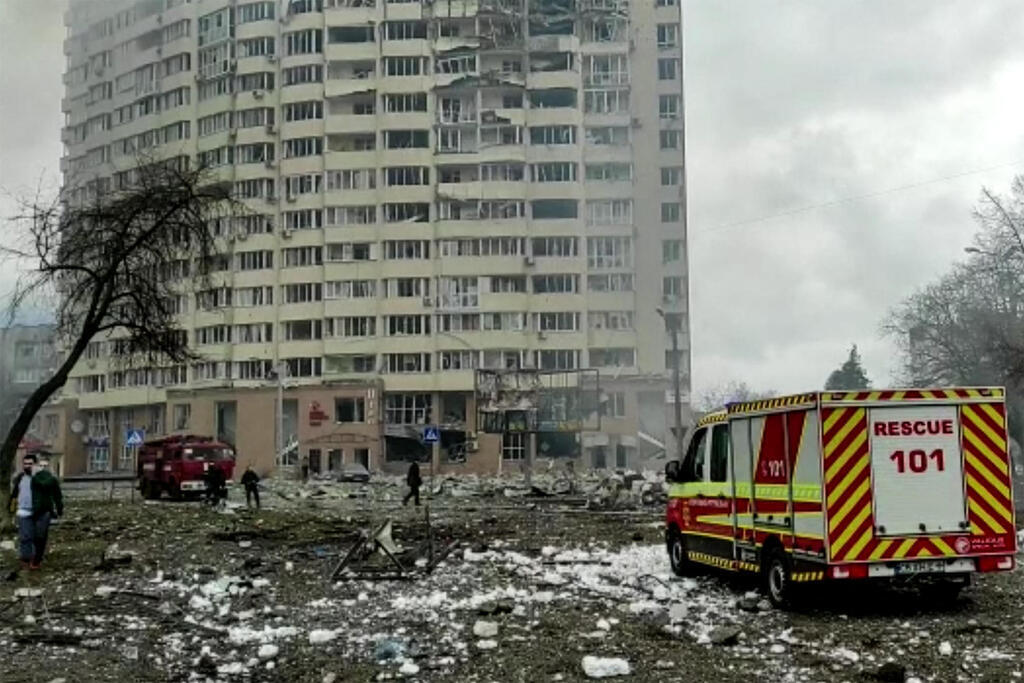

A shelled-out building in Chernihiv, Ukraine.
(Credit: AFP/ State Emergency Service of Ukraine)
Arriving in Israel was bittersweet. His wife, overwhelmed by the reality of their situation, broke down in tears when asked if the news from Ukraine was as severe as it sounded. The family stayed at a friend’s apartment in Netanya before settling in Modiin, where they live today.
“At first we thought that we’d only be here for a few months. In the first year of the war, even the second, [my wife] thought she would go back to Ukraine at some point,” Scheinerman explains. “But recently, in the last two or three months, I don’t think she thinks that anymore because the situation is so complicated.”
Today Scheinerman works for Israeli tech company ApoMedical, where he serves as VP of R&D. His work involves not only technological innovation but also providing support to the company's many Ukrainian employees affected by the war.
From war to war
Approximately 20,000 Ukrainian immigrants have fled to Israel since Russia's 2022 invasion. October 7 and Israel’s ongoing multi-front war has provoked mixed reactions for this community of new immigrants. Some feel a greater sense of safety in Israel due to the Iron Dome and other military protections than in Ukraine. Others say that the fact that their place of refuge has turned into another theater of war has triggered past traumas.
Similarly to Scheinerman, Kateryna Stavytska’s journey to Israel was grueling. She and her two sons, ages 4 and 9, traveled to Poland, where they were able to secure visas. “It was a terrible experience,” she says. “I chose roads where I knew there was no severe fighting. It took a week to get to the border. It was very crowded and until the last moment, I didn’t believe it would happen. I decided to hope for the best,” she says. Upon arriving in Israel Stavytska and her family settled in Akko, where her mother lived.
Having experienced war in both Ukraine and Israel, Stavytska says that the contrast is stark. “In Ukraine it’s more terrifying because you don’t have the Iron Dome,” she explains. At the same time, the experience of seeing Russian planes in the sky and navigating dangerous roads has left a lasting impact on her and her children and the current war triggers those memories. “We’ve had sirens and my kids wake up first and go to the stairwell. It hasn’t become routine; the children are really scared.”
Despite these challenges, Stavytska says that she feels safer in Israel than in Ukraine. In contrast, she says that the war is much scarier for the many Russian immigrants "because they’ve never experienced a real war. Other problems, yes, but not that.”
Stavytska adds that the economic situation and difficulty finding work has prompted some Ukrainian immigrants to leave more than the fear of war. “Without a job, it’s very hard. It’s something that the Israeli government should think about,” she says, adding that, “Israeli high-tech is really dependent on Ukrainian and Russian tech specialists.”
She credits the support she received from Place IL, an organization that seeks to integrate underrepresented communities in Israel's tech industry, for helping her find her first job in Israel at tech startup Unity as a QA engineer. Today she works at a software development startup called Bagel.AI.
‘Israel and Ukraine are on the same side’
While Israel's ongoing war has led to a decrease in the number of immigrants to Israel in the last year, it hasn't halted immigration entirely. Polina Samsanova has been waiting in Vilnius, Lithuania, with her husband and 3-year-old daughter to board a flight to Tel Aviv with her family for months now. “We were originally supposed to fly out on August 6, but all of the airlines have canceled flights. Now the flight has been postponed until September.”
The flight cancellations were due to fears of an attack by Hezbollah in Lebanon or even the Islamic Republic of Iran following Israel’s assassination of Hezbollah commander Fuad Shukr and Hamas chief Ismail Haniyeh in Iran, the latter of which it has not claimed responsibility for.
Born in Kyiv, Samsanova has worked in tech and telecommunications for 13 years. A private entrepreneur, she specializes in project management and delivery. As an adult, she discovered that her paternal grandfather hid his Jewish identity, due to the traumatic experiences of his youth, including being sent to a work camp in Siberia as a child. “My father, who is now 92, only admitted it much later in life,” she says.
This revelation added a new dimension to Samsonova’s sense of identity. “I felt a stronger connection to Israel and a desire to connect with my roots,” she says. This connection was further strengthened by her visits to Israel including a three-week visit in 2015 when she worked for Israeli tech company Playtech, during which she met friends and colleagues who reinforced her ties to the country.
Since Russia's invasion, Samsanova and her family have moved from place to place, staying with other Ukrainian refugees. Once they realized that the war in Ukraine would not be brief, they decided to move to Israel. Her parents, still in Ukraine, are planning to join them.
Having lived through missile attacks in Kyiv, Samsanova says, “The war here doesn’t scare us. During missile attacks in Kyiv, I wasn’t scared for myself but for my daughter,” she says, also crediting the Iron Dome with giving her greater security. However, like most Ukrainian immigrants, she says that she felt conflicted about leaving. “I love my country, my motherland, and I feel so much pain.”
5 View gallery
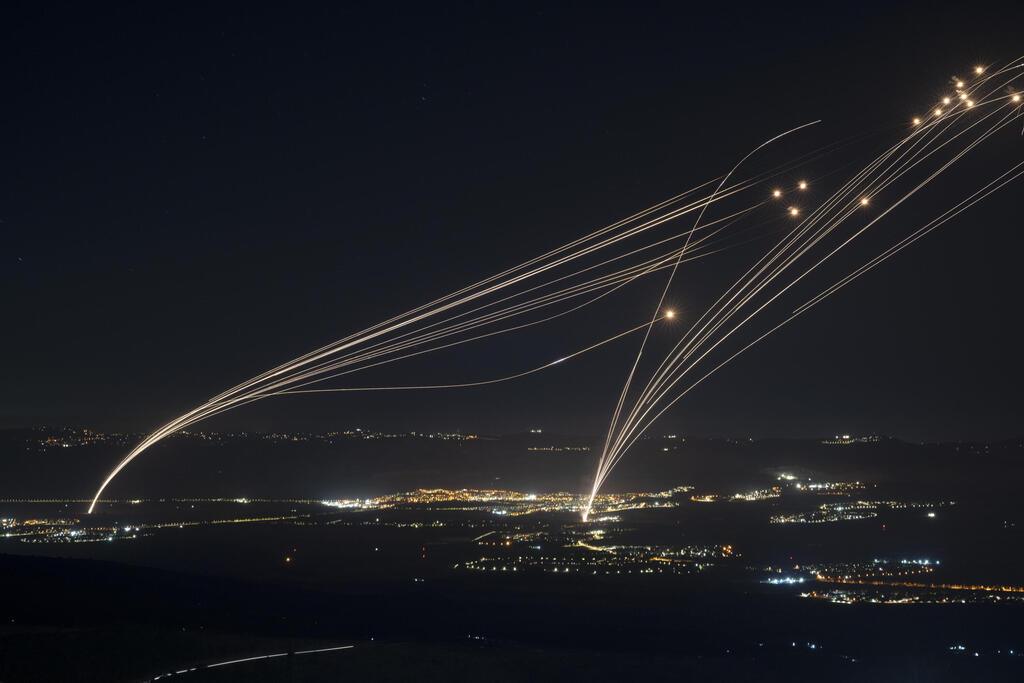

Iron Dome intercepting Hezbollah rockets in northern Israel.
(Credit: AP Photo/Leo Correa)
Amid attempts to draw comparisons between Israel’s war in Gaza and Ukraine’s war against Russia, Samsanova says, “This comparison is simple stupidity and shows an absence of critical thinking. Do we in Ukraine have terrorist organizations like Hamas? Do we use civilians as human shields?”
Stavytska agrees, adding that, “I’ve heard Russians compare Ukraine to Hamas. A lot of Russians believed that Russia didn’t even attack Ukraine. There's a big problem with communicating the truth about what’s happening in both situations. It's an informational war.”
“There’s no similarity between Russia and Israel. This is Russian propaganda. If anything, Ukraine and Israel are more similar,” says Scheinerman, “Israel and Ukraine are both fighting evil. We’re on the same side.”









